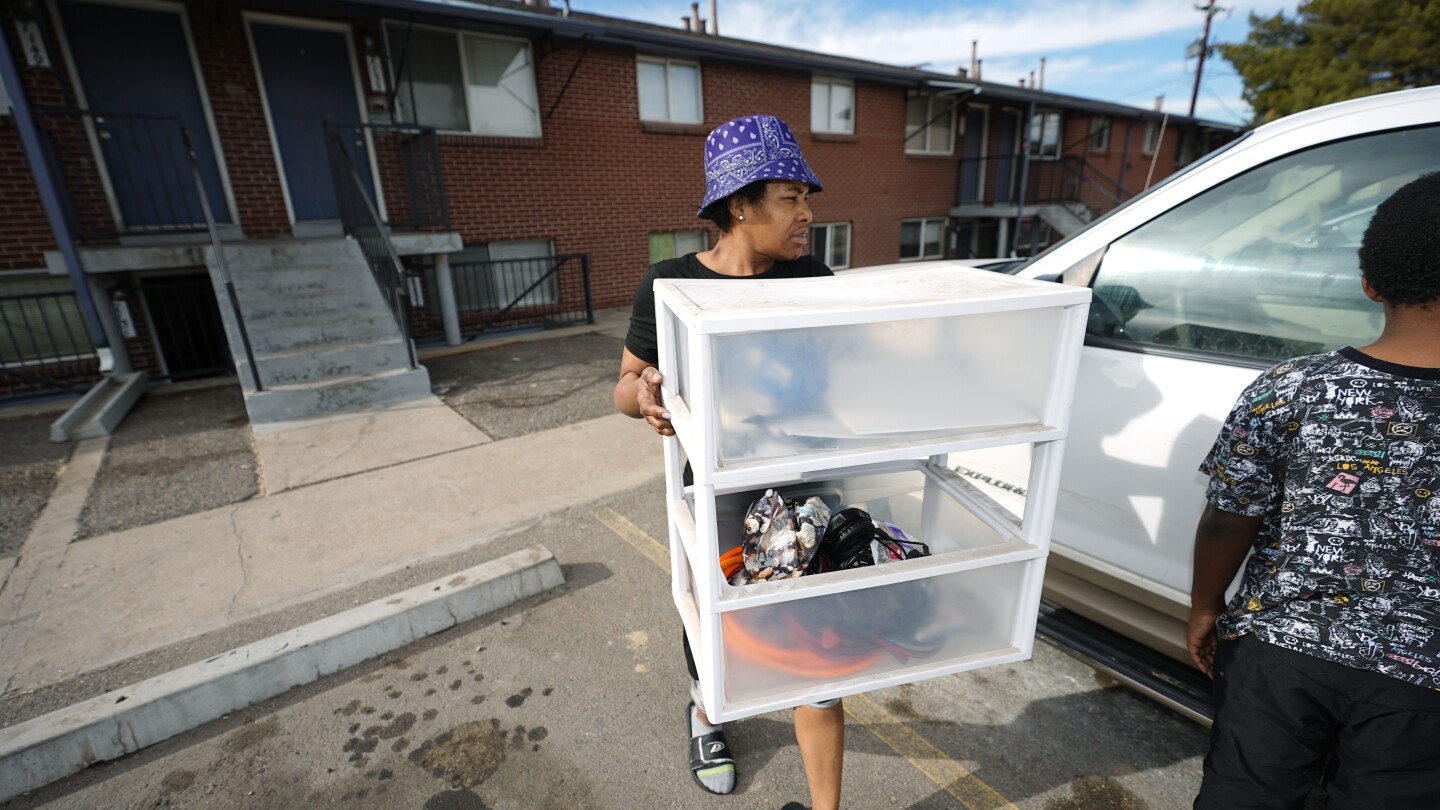- cross-posted to:
- news@lemmy.world
- cross-posted to:
- news@lemmy.world
Single mom Caitlyn Colbert watched as rent for her two-bedroom apartment doubled, then tripled and then quadrupled over a decade in Denver — from $750 to $3,374 last year.
Every month, like millions of Americans, Colbert juggled her costs. Pay rent or swim team fees for one of her three kids. Rent or school supplies. Rent or groceries. Colbert, a social worker who helps people stay financially afloat, would often arrive home to notices giving her 30 days to pay rent and a late fee or face eviction.
“Every month you just gotta budget and then you still fall short,” she said, adding what became a monthly refrain: “Well, this month at least we have $13 left.”
Millions of Americans, especially people of color, are facing those same, painful decisions as a record number struggle with unaffordable rent increases, a crisis fueled by rising prices from inflation, a shortage of affordable housing and the end of pandemic relief.
The latest data from the Harvard Joint Center for Housing Studies, released in January, found that a record high 22.4 million renter households — or half of renters nationwide — were spending more than 30% of their income on rent in 2022. The number of affordable units — with rents under $600 — also dropped to 7.2 million that year, 2.1 million fewer than a decade earlier.
…
In Congress, lawmakers are working on a bill that would expand a federal program that awards tax credits to housing developers who agree to set aside units for low-income tenants. Supporters say that could lead to the construction of 200,000 more affordable homes. Some lawmakers are also calling for more rental assistance, including a significant increase in funding for housing vouchers.



No man, credits to bulwark the insane rents people are charging will only cement the practice. Why does it take 3x your income to qualify to rent a place? Why haven’t corporations and foreign investors been moved out of the single family home industry? Why hasn’t a cap been put on Air Bnb and other short term rentals? How about changing the regulations to allow zoning changes which can allow more homes on existing lots?
The government, as usual, simply doesn’t understand the problem! So frustrating.
I think they absolutely understand the problem. It’s just that 60% of Congress are actively working against the American people on behalf of donors.
Well the answer to the 3x question is that a long time ago, in the dark ages, economists theorized that affordable housing is 30% of your gross income. Those dark ages were 1969.
Wages have lagged 137 percentage points behind core inflation since 1974. So the metric was outdated decades ago.
It feels like the request is multi pronged: provide credits for temporary relief, in the meantime, invest in building more housing and rezoning. Credits are a long term solution, like you said, but rezoning and building denser housing don’t quite provide fast results either
Exactly! If people on the bottom quartile of the income spectrum are given a free $500/mo for rent, guess what happens to rent? It magically increases by $499.